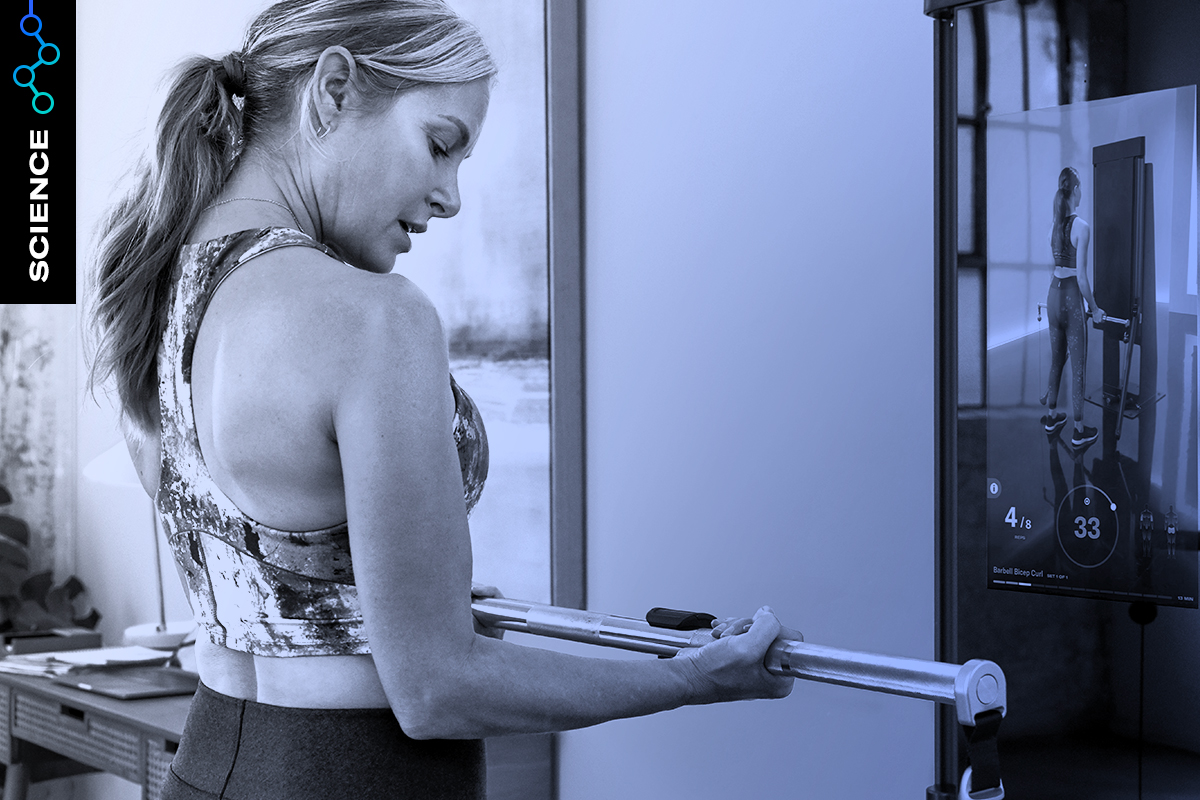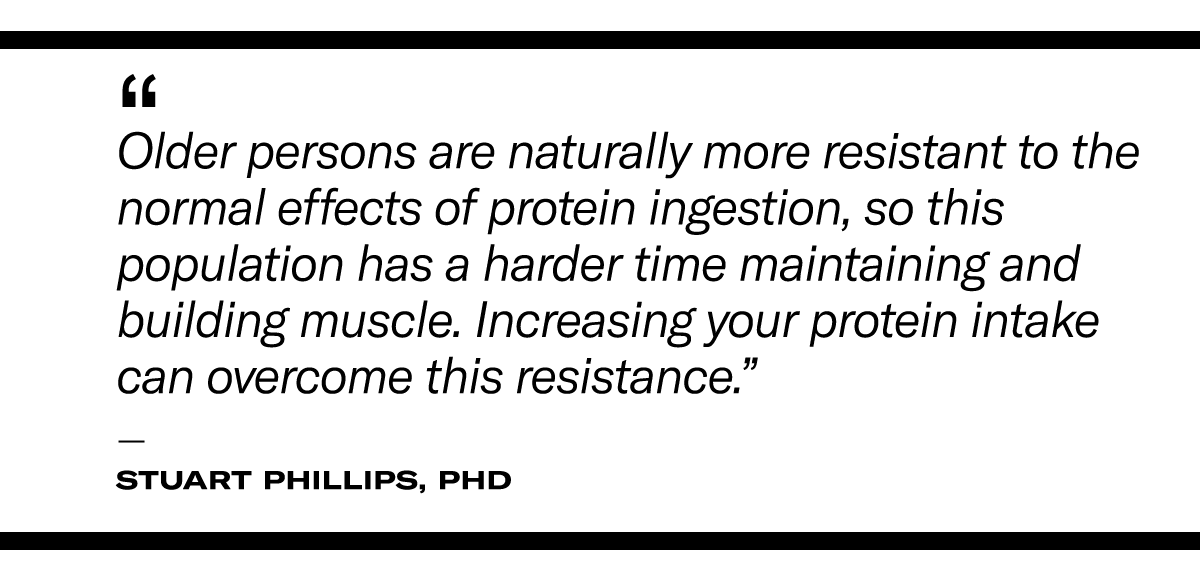When it gets harder to put on (or even maintain) muscle as you get older, adjusting your protein intake may be the answer.

- A recent study shows a higher protein intake improved body recomposition (gaining lean muscle and losing fat) in older women.
- A higher protein intake paired with resistance training provides the building blocks for muscle growth known as hypertrophy, a result that gets more challenging as you age.
- Studies looking at protein intake and protein quality support these findings in both older men and women.

With every trip around the sun, your health and fitness journey continues to flourish from added experience, wisdom, and mastery of your skills. But one sneaky drawback is that it’s harder to maintain muscle and shift your body composition —unless you dial in your protein, according to one recent study.
Researchers categorized 130 women over the age of 60 into low- (0.8 grams per kilogram per day–the Recommended Daily Allowance for adults), moderate- (1.0 g/kg/d), and high-protein intake (1.3 g/kg/d) groups. The women went through 24 weeks of progressive resistance training and measured lean body mass and body fat mass before and after using dual-energy X-ray absorptiometry (DXA scans).
The results showed that consuming at least 1 g/kg/d of protein, resulted in over a 5-percent increase in muscle mass and over 3-percent decrease in fat mass. The high-protein intake group showed similar results to the moderate-protein group while the low-protein intake, which is normally what is suggested as a guideline, only showed a 2-percent increase in lean muscle mass and less than 2-percent decrease in fat mass.
“The amino acids in protein-rich foods are the building blocks of muscle tissue,” says Brad Schoenfeld, PhD, one of the researchers on the study and Tonal Advisory Board Member. “Thus, we need a certain amount of these amino acids to support lean mass. When someone is resistance training regularly, they require a greater amount of amino acids than those who are sedentary to promote hypertrophy induced by the stimulus to the muscles.”

This finding is significant for older adults who face a unique challenge when building muscle. “Older persons are naturally more resistant to the normal effects of protein ingestion, so this population has a harder time maintaining and building muscle,” explains Stuart Phillips, PhD, a kinesiology professor and muscle physiology expert. “Increasing your protein intake can overcome this resistance.”
The study maxed out on protein at 1.3 g/kg/d and that high-intake group showed similar results to the moderate intake group, studies in younger populations recommend a higher protein intake of 1.6 to 2.2 g/kg/d for muscle-building. Schoenfeld suspects, “if we had a condition that provided protein of at least 1.6 (or more) g/kg/d, then this may have promoted additional gains in mass.” And while this study only looked at women over 60, Phillips, who also studies protein intake in older adults, supports the notion that a higher protein intake as a safe and effective strategy for both men and women.
Overall, this research confirms that if you’re looking to increase your muscle mass and reduce body fat, you should consume more than 1.0 gram of protein per kilogram per day when you are doing progressive resistance training. Also, the longer you practice resistance training, the more you’ll benefit from a higher protein intake.
A good rule of thumb: aim to get your protein from whole foods first before adding a supplement, and if you’re plant-based, incorporate complementary proteins to ensure you’re getting all of the essential amino acids in your diet.
The information provided in this article is for educational and informational purposes only. Individuals with pre-existing health conditions, injuries, or concerns should consult with their healthcare provider before trying a new exercise or nutrition regimen.


